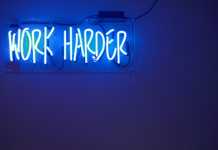The bad news is you have debt, but the good news is that you have a little extra money on hand. Is it better to pay off your loans early or just keep making your normal monthly payments?
To make the right decision, it’s important to evaluate what you get from a loan against the cost of keeping a loan around. You’ll save a bundle if you eliminate debt early, but it’s not always the best thing to do.
For now, let’s focus on the benefits, but you should also be aware of potential drawbacks of paying loans off early.
Save by Paying off Loans
The best reason to pay off debt early is to save money and stop paying interest. Interest doesn’t actually buy you anything except the ability to pay slowly – your house doesn’t get any bigger just because you’re paying lots of interest.
Some loans drag on for 30 years or more, and interest costs certainly add up over time. Other loans might be shorter term loans, but high-interest rates make them expensive. With high-cost debt (like most credit cards) it’s almost a no-brainer: paying the minimum is a bad idea.
Over your lifetime, you’ll keep more of what you earn if you pay off loans quickly.
So what’s the trade-off? When you pay down debt early, you don’t get to use that extra money. That might mean you enjoy fewer luxuries in your monthly budget, or you make do with a smaller cash cushion (making it harder to pay “surprise” expenses).
Where should you keep your money?
Savings accounts? Money markets? Under the mattress? Here’s where you should be keeping your savings.
SAVE SMARTER
What’s more, you pay an opportunity cost: you’ll have to come up with additional money to put towards other goals (retirement or a down payment on a house, for example).
In rare cases, with “precomputed” loans, it is not cheaper to pay early because the costs are already baked into your loan – but you can eliminate that monthly payment.
Financial Strength
Once you pay down debt, you’re much stronger financially. That money you’ve been putting towards monthly payments will now be available for other uses – hopefully, you’ll use it to fund your goals.
You also become more attractive as a borrower. Lenders want to be sure you have enough income to repay loans, and that existing loans don’t already eat up too much of your monthly income (they calculate a percentage, which lenders call a debt to income ratio). When you pay off debt, you improve your debt to income ratios and are more likely to get approved for a new loan.
Your credit scores can also improve when you pay down debt. Part of your credit score is based on how much you’re borrowing – especially in relation to the maximum amount that you could potentially borrow. If you’re maxed out, your credit scores will be lower, but paying down debt means you have more wiggle room. For more details, see how your credit limits affect your credit.
Peace of Mind
Some people hate debt. They pay off loans as soon as possible – even if it doesn’t make the best financial sense. That’s fine, as long as you know why you’re doing it.
You can’t put a price on happiness. Perhaps you want to eliminate debt before retiring, or you’re sick of making monthly payments.
Take a look at the big picture, and make an informed decision that you can live with.
How to Do It
Now that you know what happens when you pay your loans off early, you’re probably ready to move forward. In many cases it’s as simple as sending extra money – whether you do it all at once or just pay a little extra with each payment. Call or email your lender and ask how to do it so that your payments are properly credited to your account, and so that you know exactly how much to send. For more detailed instructions and tips, see How to Pay off Debt Early. If you’ve got multiple credit cards, use a strategy that works.


